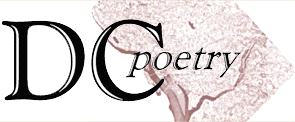That morning I was flying also. I ended up stranded a few hundred miles from home. My first trip into New York came two Saturdays later, the 22nd. The idea for this poem suggested itself that evening. I got in early, walked around Lower Manhattan for most of the day and then attended a poetry reading downtown. Afterwards, on my way home, heading uptown on Elizabeth Street, I noticed something.
Just as I crossed Spring I saw all this - this powder - in the street. Grayish, granular. It looked like the kind of mess you see when a building is being rehabbed. Since I was traveling through what is now a gentrifying neighborhood, I assumed an upgrade of the housing stock, as they say, was the explanation. But as I looked around I couldn't make out any buildings obviously being renovated. There were no dumpsters to be seen, no pedestrian bridges to protect passersby from falling construction debris. And there was more and more of this - in the gutters, on both sides of the street, under every parked car and truck. My car was rolling over it. Then, about halfway up the block I figured it out.
For some reason this single, solitary block, of all the streets I had driven or walked that day, had not been cleaned up afterwards. Involuntarily, a perhaps uncharitable thought struck me - a possible explanation. This was Little Italy after all. It was a place where among other rules and regulations, the Sanitation Department's alternate-side-of-the-street parking strictures used to be flouted often, at least back when I lived there in the Eighties, especially if a social club happened to be located nearby. Maybe someone on this block had retained enough clout to keep it from being swept until he was good and ready to move his Seville. Then I brushed that thought aside.
I realized what I was looking at was the dust that had covered the entire city and all the people in it that day. This was the dust that had billowed out in those terrible waves when the two buildings came down. Why hadn't this block hadn't been cleaned yet? And then I started wondering, as I know everyone else did, 'what exactly is in this stuff?'
It's the people, I thought. I'm driving over the people. All the people they're never going to find. But not just the people. It's the furniture - what they were sitting on. It's what they were reading and getting ready to eat. What they were wearing and what was in their pockets. It's everything. It's a whole world, gone. By the time I got to the end of the block, and crossed Prince Street, the poem presented itself to me.
I'd written long list poems before, though not this long, and had included list elements into other work over the years. In addition, New York, its place names and personality, had long been a big part of my writing - my first book was illustrated with photographs of New York and collages made of print material found on its streets. Likewise, one of my books from about ten years ago is actually entitled NEW YORK. Also, incorporating the language of business, the law, and other non-literary worlds, brand names and product names, into my writing has been a constant for decades. I knew I could write this.
But when I got home that night I didn't sit down and start writing. Days went by and while I thought about the poem, fairly constantly in fact - how it should be organized, what should be included, how long it should run - I didn't go to work on it. I couldn't. Weeks went by and then months. It wasn't as if I was trying to avoid the subject - that was impossible. Nevertheless, despite the time and energy I spent circling around the poem, I wasn't able to bring myself to begin. The more I thought about it, the less there was that couldn't, shouldn't be left out. That was very hard to deal with. Then, the following spring, I was asked to give a reading. In the space of a few weeks, with a deadline looming, I finally put it together.
Some of what appears in "The Dust" is based on what I suppose should be called research. The names of the people, for example - those are all people who died. Whether their bodies were lost, however, and transformed into that dust, I don't know. When it comes to other 'things' or 'items,' I drew assumptions from news accounts. The police shields and fire department helmets, for example, were all worn by individuals who did die there that day. Whether those specific items were actually vaporized, I don't know.
When it comes to other things, like the pieces of airplane and antenna, the furniture, the clothing, the SEC filings, the jewelry, the food, the newspapers and the opera tickets, I used my imagination. Some of what appears in the poem I could research, and I did. Other elements I couldn't, so I guessed. I suppose I could have turned the writing into a fact-finding project, and presented only that which I could verify as having been turned into dust that morning, but I didn't. Or couldn't.
The hardest part of writing this poem? Once I got going, I had hundreds of pages in front of me. It was deciding what to leave out.
end

